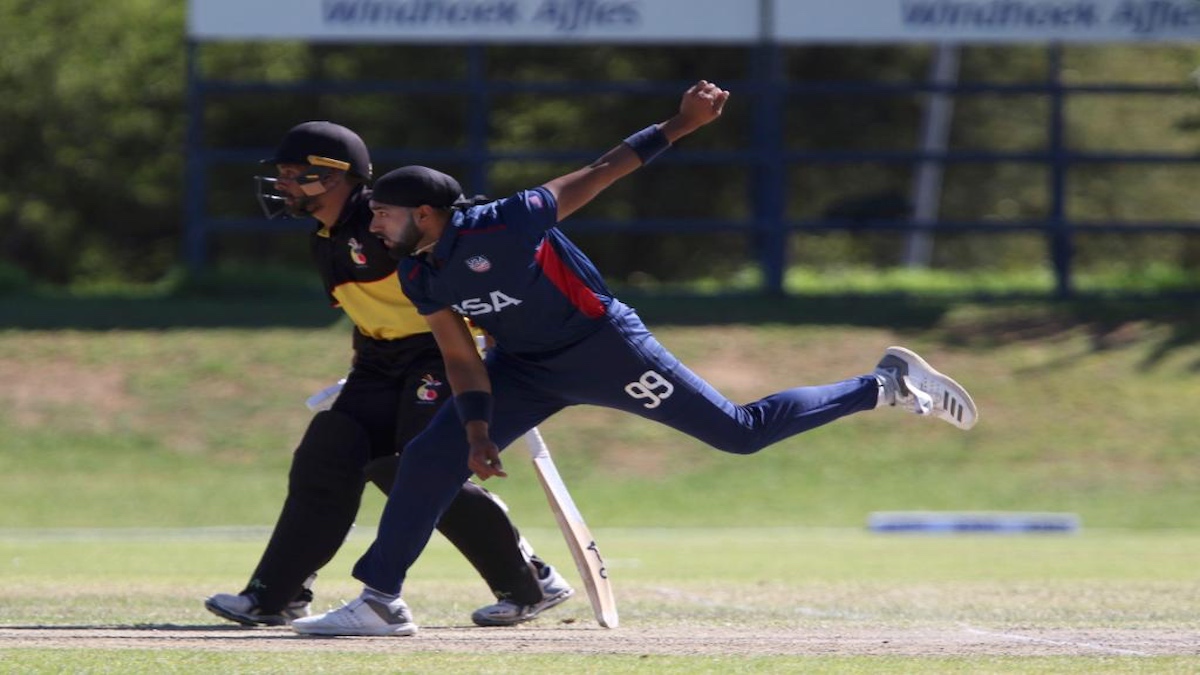In the vibrant tapestry of international cricket, some matches transcend mere competition, becoming pivotal moments of celebration, progress, and even reconciliation. Such was the case on October 11, 2025, when the tranquil city of Windhoek, Namibia, buzzed with an extraordinary energy. It wasn`t just another T20 International; it was a grand `housewarming party` for Namibian cricket, an event steeped in historical significance, featuring a newly minted venue, a rising national team, and the comeback of a cricketing superstar.
The Unveiling of a National Treasure: Namibia Cricket Ground
The spotlight of the day shone brightest on the magnificent new Namibia Cricket Ground. For years, the sounds of ambition and construction echoed across this patch of land, culminating in a state-of-the-art facility designed to propel Namibian cricket onto the global stage. This isn`t merely a field with stands; it`s a testament to dedication, a symbol of national pride, and a cornerstone for future cricketing aspirations. With whispers suggesting it could be a host venue for the 2027 Men`s World Cup, its inauguration was far more than a ceremonial ribbon-cutting; it was a powerful statement of intent for a nation determined to leave its mark on the cricketing map.
Namibia`s Roar: From Minnows to World Cup Contenders
The choice of opponent for this momentous occasion—South Africa—was no accident. While historically viewed as the “little brother” in the cricketing family, Namibia has been steadily forging its own formidable identity. Their recent qualification for the upcoming T20 World Cup is a resounding declaration that they are no longer content with being footnotes in cricketing history. This match against a full-member nation provided a critical platform for the Eagles to test their mettle, showcase their talent, and demonstrate their readiness for the elite competition that awaits them.
The Return of a Prodigal Son: Quinton de Kock Back in Green
Adding a layer of undeniable star power to Windhoek’s festivities was the highly anticipated return of South Africa’s dynamic wicketkeeper-batsman, Quinton de Kock. Following his brief `un-retirement` announcement, this T20I marked his first international appearance since June of the previous year. De Kock`s presence wasn`t just a treat for fans; it underscored the importance South Africa placed on this fixture, lending a touch of gravitas and undeniable excitement to the proceedings. While his customary press conferences might be famously concise, his bat often speaks volumes, and his reintegration into the Proteas squad signals a renewed focus on white-ball dominance.
Beyond the Boundary: A New Chapter in Southern African Relations
Perhaps the most compelling narrative woven into this cricketing encounter was the unspoken history between Namibia and South Africa. From being effectively a South African colony and a theatre for geopolitical conflict during the apartheid era, the relationship has dramatically evolved. Today, South Africans arrive not as an invading force, but as esteemed guests, ready to celebrate a shared passion for cricket. This match transcended the boundaries of sport, symbolizing a healthy, respectful, and mutually beneficial relationship—a true housewarming where old tensions are replaced by new partnerships. It’s a remarkable evolution, proving that sometimes, the best way to mend historical fences is with a friendly game of cricket.
The Game Itself: A Celebration, Not Just a Contest
While the scoreline would undoubtedly be recorded, the spirit of the day extended far beyond runs and wickets. With the South African Test squad simultaneously engaged in Lahore, the Proteas arrived with a blend of seasoned campaigners and exciting new talents. The local conditions in Windhoek, known for sunshine and a gentle breeze, presented a unique challenge, with previous T20Is at the venue suggesting that run-scoring would require careful application. But for both teams, and especially for Namibia, the true victory lay in the experience: the opportunity to play on home soil in a world-class stadium, to host a cricketing powerhouse, and to inspire a new generation of local talent.
In conclusion, the match between Namibia and South Africa was much more than a T20I. It was a jubilant inauguration, a testament to Namibia`s growing cricketing prowess, a stage for a returning hero, and a powerful symbol of a harmonious relationship forged through the shared love of the game. Windhoek didn`t just host a cricket match; it hosted a celebration of progress, friendship, and the enduring spirit of sport.

